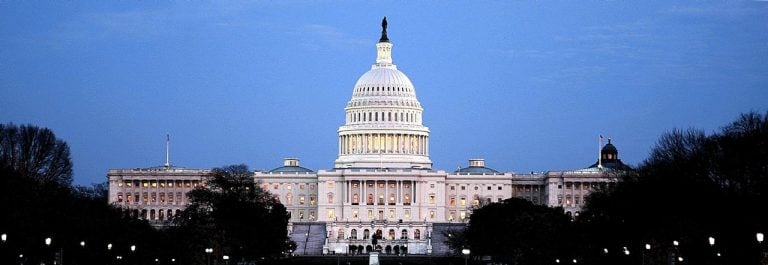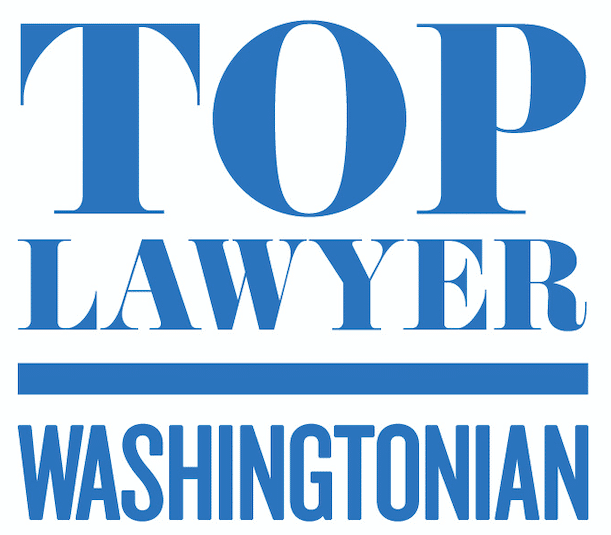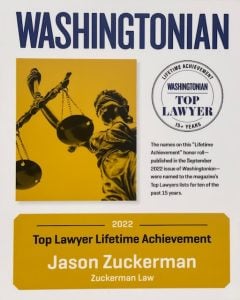
Washington DC Law Firm Representing SEC Whistleblowers
 Zuckerman Law is a Washington, DC-based law firm that represents whistleblowers nationwide in whistleblower retaliation and SEC whistleblower rewards claims, and litigates employment-related disputes on behalf of employees in the District of Columbia, Maryland, and Virginia. Contact us today to find out the strategies that we have successfully employed to secure SEC whistleblower awards and maximize damages in whistleblower retaliation cases.
Zuckerman Law is a Washington, DC-based law firm that represents whistleblowers nationwide in whistleblower retaliation and SEC whistleblower rewards claims, and litigates employment-related disputes on behalf of employees in the District of Columbia, Maryland, and Virginia. Contact us today to find out the strategies that we have successfully employed to secure SEC whistleblower awards and maximize damages in whistleblower retaliation cases.
To schedule a consultation, click here or call us at 202-262-8959.
Click here to read reviews from our clients.
The firm’s practice areas include:
- SEC whistleblower rewards
- CFTC whistleblower rewards
- False Claims Act Qui Tam Actions
- IRS tax fraud whistleblower rewards
- Anti-Money Laundering whistleblower rewards
- Sarbanes-Oxley Whistleblower Protection Claims
- NDAA and False Claims Act Whistleblower Retaliation Claims
- Whistleblower Retaliation Claims
 The firm’s staff includes a licensed Certified Public Accountant and Certified Fraud Examiner whose experience working at a large audit firm enhances the firm’s ability to investigate complex financial schemes and prepare effective whistleblower submissions to the SEC. Matt Stock routinely works with SEC whistleblowers nationwide and abroad to disclose a wide variety of fraud schemes to the SEC.
The firm’s staff includes a licensed Certified Public Accountant and Certified Fraud Examiner whose experience working at a large audit firm enhances the firm’s ability to investigate complex financial schemes and prepare effective whistleblower submissions to the SEC. Matt Stock routinely works with SEC whistleblowers nationwide and abroad to disclose a wide variety of fraud schemes to the SEC.
Dallas Hammer is a seasoned employment attorney who has established favorable precedents for whistleblowers and has developed substantial experience representing cybersecurity whistleblowers.
 Described by the National Law Journal as a “leading whistleblower attorney,” founding Principal Jason Zuckerman has established precedent under a wide range of whistleblower protection laws and obtained substantial compensation for his clients and recoveries for the government in whistleblower rewards and whistleblower retaliation cases. Three of the matters he has worked on are featured in Tom Mueller’s seminal book about whistleblowing Crisis of Conscience: Whistleblowing in an Age of Fraud and Dan Maldea’s Corruption in U.S. Higher Education: The Stories of Whistleblowers. False Claims Act qui tam cases he has worked on in conjunction with other attorneys have resulted in recoveries in excess of $100 million, and he has secured settlements in ten SOX whistleblower retaliation matters above $1 million.
Described by the National Law Journal as a “leading whistleblower attorney,” founding Principal Jason Zuckerman has established precedent under a wide range of whistleblower protection laws and obtained substantial compensation for his clients and recoveries for the government in whistleblower rewards and whistleblower retaliation cases. Three of the matters he has worked on are featured in Tom Mueller’s seminal book about whistleblowing Crisis of Conscience: Whistleblowing in an Age of Fraud and Dan Maldea’s Corruption in U.S. Higher Education: The Stories of Whistleblowers. False Claims Act qui tam cases he has worked on in conjunction with other attorneys have resulted in recoveries in excess of $100 million, and he has secured settlements in ten SOX whistleblower retaliation matters above $1 million.
In 2019, the National Law Review awarded Zuckerman its “Go-To Thought Leadership Award” for his analysis of developments in whistleblower law, and Washingtonian magazine has named two of our attorneys to its list of Top Whistleblower Attorneys. He was recognized by Washingtonian magazine as a “Top Whistleblower Lawyer” in 2020, 2018, 2017, 2015, 2009, and 2007 selected by his peers to be included in The Best Lawyers in America® in the category of employment law (2011-2021), and selected by his peers to be listed in SuperLawyers (2012 and 2015-2021) in the category of labor and employment law. He is rated 10 out of 10 by Avvo, based largely on client reviews, and rated AV Preeminent® by Martindale-Hubbell based on peer reviews.






The SEC Whistleblower Attorneys at Zuckerman Law represent whistleblowers disclosing fraud and other securities law violations to the SEC, including:
- Accounting fraud;
- Inadequate internal controls;
- Investment company fraud;
- Insider trading;
- EB-5 investment fraud;
- Foreign bribery payments and other violations of the Foreign Corrupt Practices Act;
- Market manipulation schemes;
- Unregistered broker-dealers;
- Investment adviser fraud;
- Offering fraud and Ponzi schemes;
- Deceptive non-GAAP financial measures; and
- Violations of auditor independence rules.
Washington DC Sarbanes-Oxley (SOX) Whistleblower Lawyers
Washington DC SEC Whistleblower Attorneys
Washington DC Whistleblower Bounty Lawyers
How a Washington DC SEC Whistleblower Layer Can Help you Obtain an SEC Whistleblower Award

